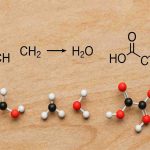Table of Contents
In the world of bodybuilding, massive muscles and deep discipline go hand in hand.
But there’s one question that keeps surfacing online and in gyms: Why do some bodybuilders have high-pitched voices? Is it the training? Supplements? Hormones? Let’s break down the facts behind the voice pitch of bodybuilders and separate science from myth.
Do Bodybuilders Have High-Pitched Voices?

While not all bodybuilders exhibit this trait, some do seem to have notably higher-pitched voices, especially during interviews or public appearances.
This observation has sparked rumors, TikTok jokes, and even concern about the long-term effects of bodybuilding on vocal health.
But the reality isn’t so black and white. The pitch of a person’s voice is influenced by many factors, and not all of them are directly related to muscle building.
The Science Behind Voice Changes in Bodybuilders
Your voice pitch is primarily controlled by your vocal cords and the structure of your larynx (voice box).
Hormones, especially testosterone, play a significant role in deepening the voice during puberty.
In general, the more testosterone you have, the thicker and longer your vocal cords become, resulting in a deeper voice.
But when this natural hormone balance is artificially altered, it can lead to some unexpected effects.
Anabolic Steroids and Vocal Changes

One of the leading reasons bodybuilders may experience high-pitched voices is the use of anabolic steroids. Steroids can disrupt the body’s natural hormone production.
Here’s how:
- Steroid use often causes testosterone suppression.
- The body may convert excess testosterone into estrogen (a process called aromatization).
- Increased estrogen levels can influence vocal pitch, particularly if used for prolonged periods.
- The result? A higher-pitched or inconsistent voice tone that contrasts with the individual’s muscular build.
Interestingly, in women who use anabolic steroids, voice deepening can become permanent, whereas in men, estrogenic side effects like pitch elevation may develop.
Human Growth Hormone (HGH) and Supplements
Bodybuilders often stack steroids with HGH (human growth hormone) or other muscle-enhancing supplements. While HGH doesn’t directly affect voice pitch, it can cause tissue swelling, including in the throat area.
Additionally, the endocrine system may be disrupted due to excessive supplementation, affecting testosterone regulation indirectly and possibly altering vocal tone.
Larynx Anatomy and Voice Mechanics
Your larynx houses the vocal cords, and any changes in hormones or soft tissue swelling can influence how these cords vibrate.
- Testosterone: Encourages thickening of vocal cords, leading to a deeper voice.
- Estrogen: Has the opposite effect and may make cords thinner or affect elasticity, resulting in a higher-pitched voice.
Also, if a bodybuilder’s neck and throat muscles grow disproportionately, it may add tension or constriction to the vocal cords, subtly affecting vocal tone.
Natural vs. Enhanced Bodybuilders
Here’s a key distinction:
- Natural bodybuilders, who avoid steroids and focus on diet and exercise, rarely experience vocal pitch changes.
- Enhanced bodybuilders, especially those abusing synthetic hormones, are more likely to exhibit hormonal imbalances, which may impact their voice.
This difference is important for those considering competitive bodybuilding or fitness modeling without the health risks.
Myths About Bodybuilding and High Voices
Let’s debunk a few common myths:
Myth 1: Lifting weights makes your voice higher
Truth: Weight training has no direct effect on voice pitch.
Myth 2: All bodybuilders have high-pitched voices
Truth: Only a subset do—and it’s often due to steroid use.
Myth 3: Protein shakes and creatine change your voice
Truth: Common supplements don’t affect vocal cords.
Media, Perception, and Bias
Why do we associate high-pitched voices with muscular men?
Media and memes often cherry-pick clips where enhanced bodybuilders show vocal strain. This creates confirmation bias, reinforcing that all big lifters must sound “off.”
Social media clips also amplify rare cases, making them seem more common than they are.
Read also: How to Choose a Safe Dental Clinic and Avoid Fake Braces
Can Voice Changes Be Reversed?
The good news: If hormone imbalances are caught early and corrected, voice pitch can often return to normal. Recovery may include:
- Ceasing steroid use
- Hormone Replacement Therapy (HRT)
- Voice therapy with a speech-language pathologist
However, if damage to the vocal cords becomes permanent (especially in long-term users), the effects may not be fully reversible.
Should You Be Concerned?
A high-pitched voice is not inherently dangerous, but it can be a sign of deeper hormonal disruption. Long-term anabolic steroid use has been linked to:
- Heart disease
- Liver damage
- Infertility
- Mood disorders
If you notice voice changes, it’s a signal to consult a medical professional for vocal health and overall endocrine balance.
People also ask
Can steroids make your voice higher?
Yes, if they cause increased estrogen or hormonal imbalance in men.
Why do some muscular men sound feminine?
Likely due to steroid-induced estrogen levels or vocal cord changes.
Is voice pitch a sign of steroid use?
It can be one of several signs, but it is not definitive on its own.
Do natural bodybuilders experience vocal changes?
No, not typically—unless affected by unrelated medical conditions.
Final Words
So, why do bodybuilders have high-pitched voices? In most cases, it’s not from lifting weights, but from hormonal imbalances caused by anabolic steroid use.
These changes may affect the larynx and vocal cords, subtly or significantly altering voice pitch.
Understanding the science behind voice changes helps break the stigma and educate the community on safer, more responsible bodybuilding practices.
If you’re training naturally, your voice shouldn’t change. If you’re considering enhancers, weigh the risks and always consult professionals.






